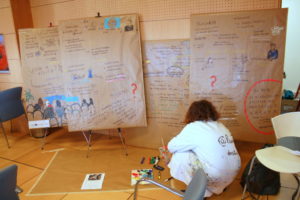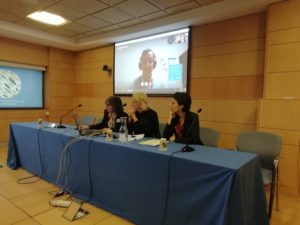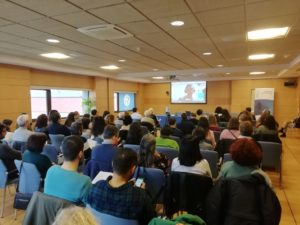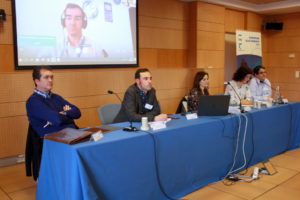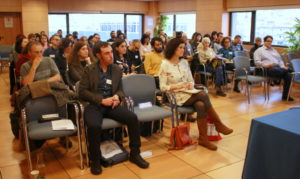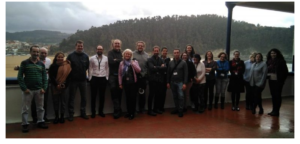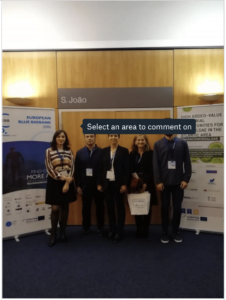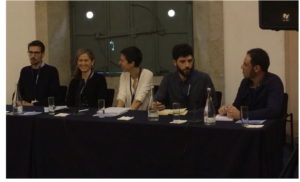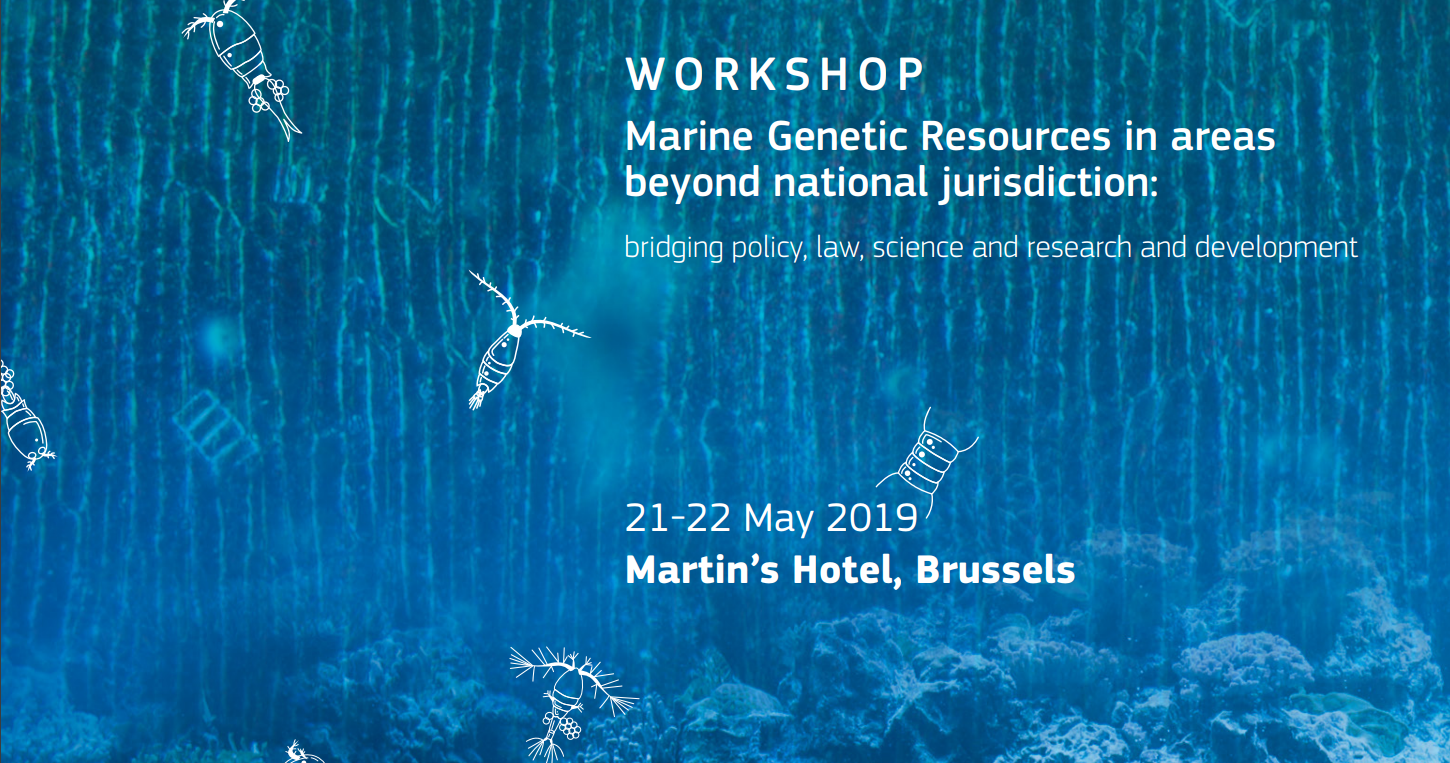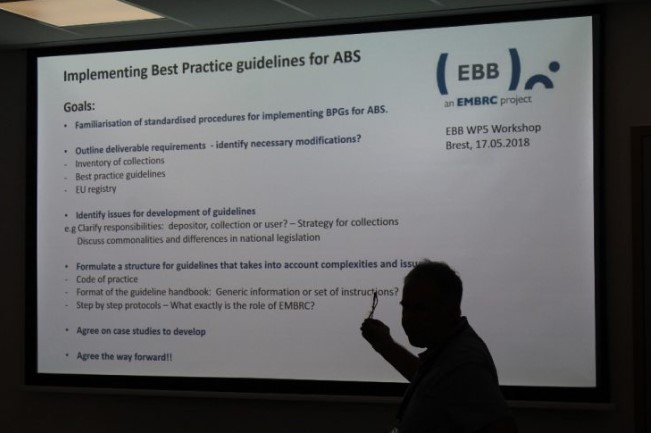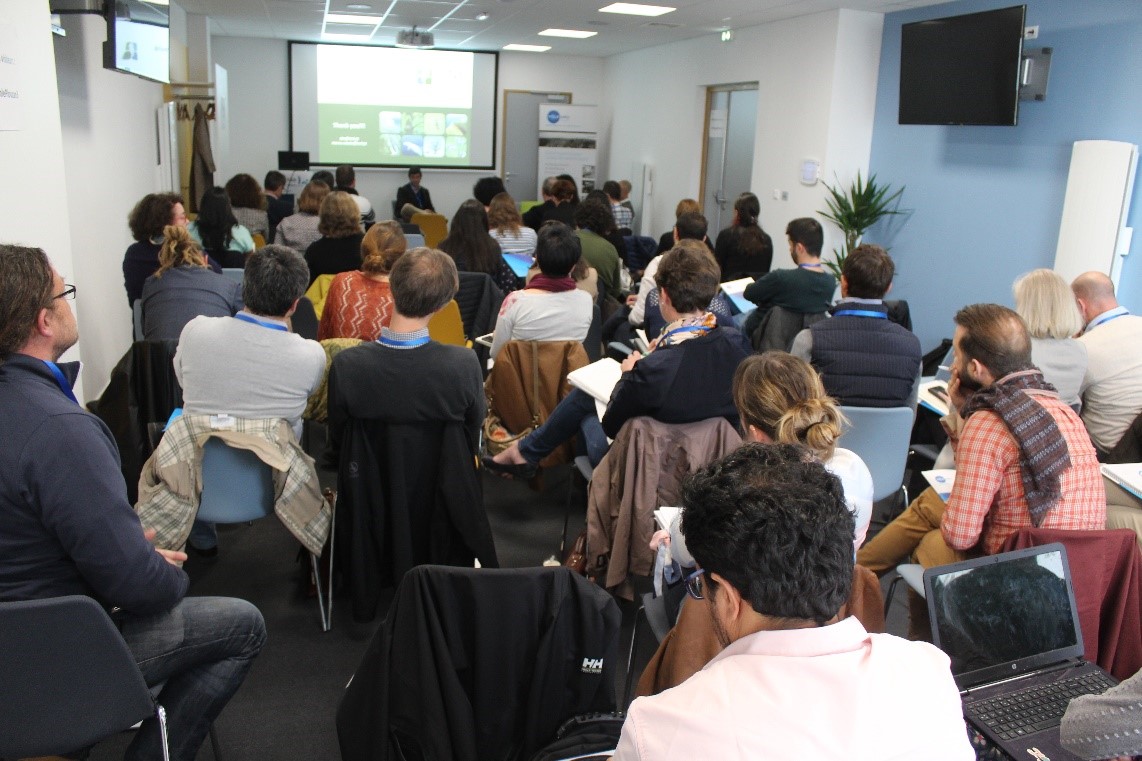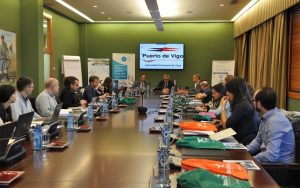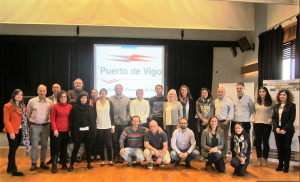The Marine Research Centre (CIM) of the University of Vigo, coordinator of the “European Blue Biobank” (EBB) project, together with the CETMAR Foundation, and especially with the Interreg Atlantic Area project entitled COCKLES organized a technical workshop to raise awareness of the existing obligations to access and use genetic resources derived from the Nagoya Protocol (2010) and associated regulations. In Spain, the Protocol is translated into the ByLaw 124/2017, which regulates the access and use of genetic resources from wild taxa. Finally, in Galicia, the Law 5/2019 on natural heritage and biodiversity reflects basic aspects for the application of the rule in this territory and the obligation of communication of the territorial administration to the national focal point.
The workshop was opened by Paloma Rueda (Director of CETMAR Foundation) and Belén Martín Míguez (coordinator of EBB). Alejandro Lago, project manager of the UNDP-GEF Global ABS Project, presented the international context about the Nagoya protocol. Noelia Vallejo Pedregal, Spanish National Focal Point for the Nagoya Protocol, from the Ministry of Ecological Transition, explained the legal framework in Spain. Fiz da Costa, project manager of EBB project, presented the Best Practice Guidelines developed by EBB partners and use cases implemented. The event was closed with a round table of debate with scientist, policy makers and industry, with the contribution of Angel F. Gonzalez (CSIC), representing the scientists; Fiz da Costa, Elisa Gago (Xunta de Galicia), representing the competent authority in Galicia; Noelia Vallejo, from the National Focal Point in Spain; Carlos Padilla, Biomar mt, a private company with experience in ABS regulations; and Rosa Fernández (CETMAR), acting as moderator.
The workshop was filmed by UVigoTV. Presentations were in Spanish and and videos are available in the following links:
- Intervención de Paloma Rueda. Directora de CETMAR, Bienvenida y presentación de la jornada Video 1 Bienvenida
- Intervención de Belén Martín. Responsable de la participación de la ECIMAT-UVigo en la Red Europea de Estaciones de Biología Marina (EMBRC-ERIC), Bienvenida y presentación de la jornada Video 2 Bienvenida Belén Martín
- El protocolo de Nagoya en el contexto de la protección de la biodiversidad global. Alejandro Lago, Programa de Desarrollo de Naciones Unidas, Instrumento Financiero Global, Naciones Unidas Video 3 Presentación Alejandro Lago
- Turno de preguntas Alejandro Lago. El protocolo de Nagoya en el contexto de la protección de la biodiversidad global. Video 4 Turno de preguntas Alejandro Lago
- Marco legislativo español y procesos de consulta. Noelia Vallejo, Punto Focal Nacional para el Protocolo de Nagoya. Jefa de Área de Estrategias y Planes de Conservación. Subdir. Gral. de Biodiversidad y Medio Natural, MITECO Video 5 Presentación de Noelia Vallejo
- Proyecto EBB: Casos de estudio y Guía de buenas prácticas. Fiz da Costa, Gestor del Proyecto EBB, Centro de Investigación Mariña, Universidade de Vigo Video 6 Presentación Fiz da Costa
- Introducción a la mesa redonda: debate entre representantes de las administraciones, la industria y los centros de investigación. Moderadora Rosa Fernández Otero, Coordinadora del área de promoción y transferencia de tecnología, CETMAR Video 7 Presentación mesa redonda
- Mesa Redonda. Representante del ámbito científico. Ángel F. González González, Head of the Ecology and Marine Resources Department en Instituto de Investigaciones Marinas, CSIC Video 8 Mesa redonda Ángel F. González González
- Mesa Redonda. Representante de la administración. Elsa Gago, Jefa del servicio de biodiversidad de la Dirección Xeral de Patrimonio Cultural de la Consellería de Cultura e Turismo, Xunta de Galicia Video 9 Mesa redonda Elsa Gago
- Mesa Redonda. Representante del ámbito empresarial. Carlos Padilla Martinez, Head of microalgae laboratory, BIOMAR MICROBIAL TECHNOLOGIES Video 10 Mesa redonda Carlos Padilla Martinez
- Turno de preguntas y debate entre representantes de las administraciones, la industria y los centros de investigación. Video 11 Debate
- Conclusiones y cierre. Rosa Fernández Otero, Coordinadora del área de promoción y transferencia de tecnología, CETMAR Video 12 Conclusiones y cierre
